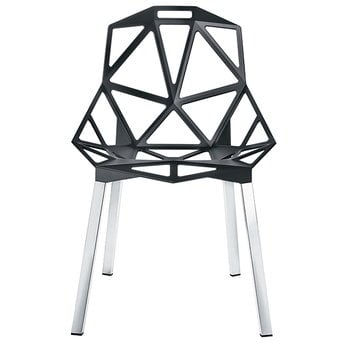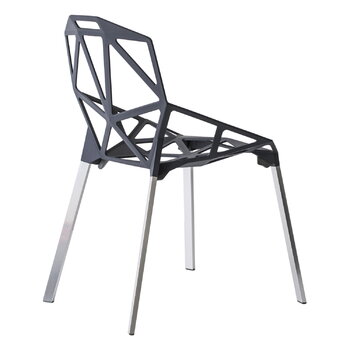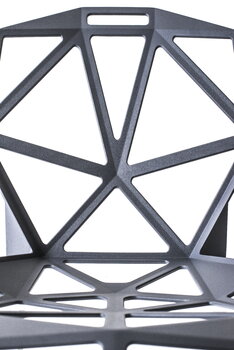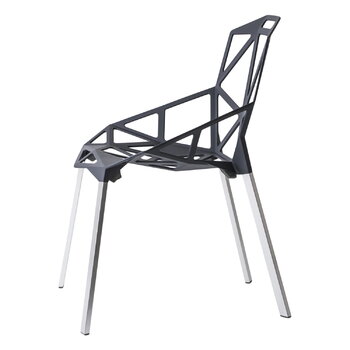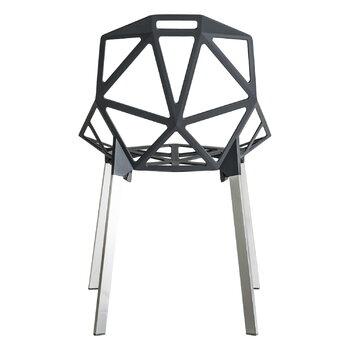Magis’ Chair_One is an iconic, distinctive chair designed by Konstantin Grcic for Magis in 2003. Chair_One features a seat constructed of polygonal flat planes, just like a football – the pieces are assembled at angles to each other, resulting in a three-dimensional, curved shape. Made of cast aluminum, Chair_One is stackable and designed for both indoor and outdoor use.
According to Konstantin Grcic, his design approach to Chair_One started as a mixture of naivety and bluntness, which eventually turned into an exceptionally dynamic and interesting geometric form. The pieces of the Family_One collection are real eyecatchers both individually or in groups, and thanks to their robust construction, they are equally well suited for domestic and contract use.
